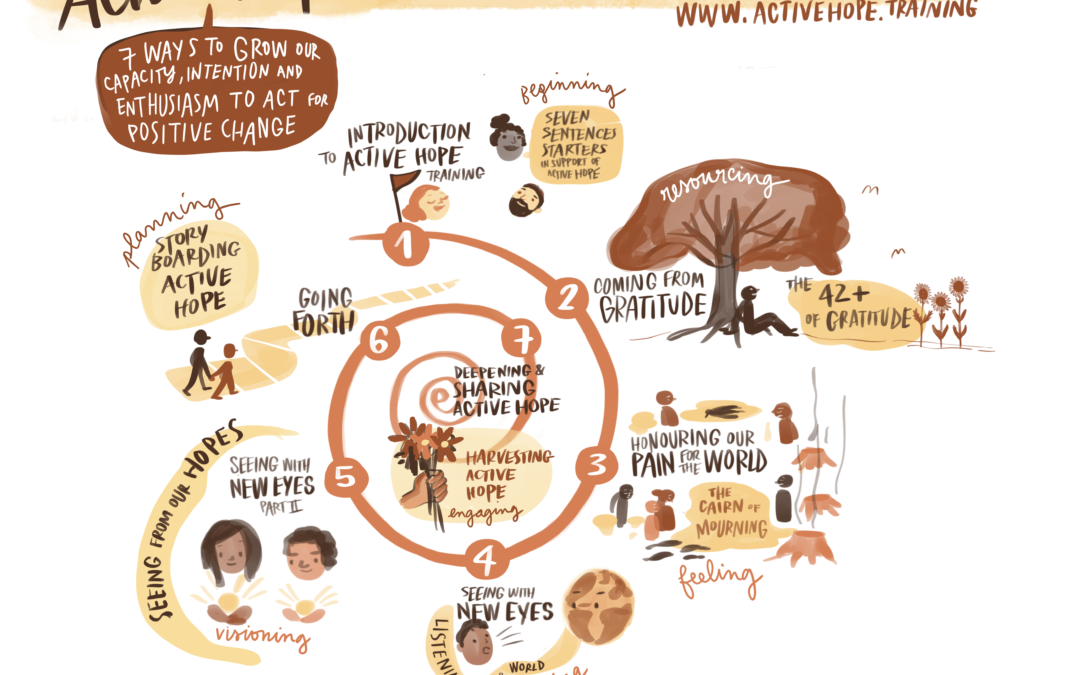There are many reasons to feel despair, hopelessness, and powerlessness in today’s world. Wars, injustices, inequalities, diseases, sustainability issues, climate change, racism, speciecism, species extinction, and countless others. (I talk about some of them in my books.)
So much so that most of us prefer to look the other way and ignore the problems we’re facing — because they’re just too big and painful.
And besides, what can one person do?
Avoidance is a strategy that may work well in the short-term, but in the long run? It’s not going to get us anywhere.
Even if the situation seems hopeless, there are always things to do.
But what? And where do we even begin?
Is there anything that can help us feel more resourceful, empowered, hopeful, and perhaps even … joyful?
I have many thoughts and ideas on that, but for now — I’d like to share two things. Both come down to the way we think about hope.
One is a quote by Vaclav Havel on hope, the other is a free online course on Active Hope that I just stumbled upon and I’m super pumped about. I found it after buying a book in a physical bookstore (yes! these still exist, LOL!) titled “Active Hope: How to Face the Mess We’re in with Unexpected Resilience and Creative Power”.
The course is free and you can find it here: Active Hope Training. A free online course designed to strengthen your ability to make a difference in the world.

From what I’ve read so far, the book and the course don’t provide any specific solutions, instead, they help us change our mindset and attitude when confronting these huge problems. So, definitely check them out.
And here is what Vaclav Havel had to say about hope:
“The kind of hope I often think about (especially in situations that are particularly hopeless, such as prison) I understand above all as a state of mind, not a state of the world. Either we have hope within us or we don’t; it is a dimension of the soul; it’s not essentially dependent on some particular observation of the world or estimate of the situation. Hope is not prognostication. It is an orientation of the spirit, an orientation of the heart; it transcends the world that is immediately experienced and is anchored somewhere beyond its horizons.
Hope, in this deep and powerful sense, is not the same as joy that things are going well, or willingness to invest in enterprises that are obviously headed for early success, but, rather, an ability to work for something because it is good, not just because it stands a chance to succeed. The more unpropitious the situation in which we demonstrate hope, the deeper that hope is. Hope is definitely not the same thing as optimism. It is not the conviction that something will turn out well, but the certainty that something makes sense, regardless of how it turns out. In short, I think that the deepest and most important form of hope, the only one that can keep us above water and urge us to good works, and the only true source of the breathtaking dimension of the human spirit and its efforts, is something we get, as it were, from “elsewhere.” It is also this hope, above all, which gives us the strength to live and continually to try new things, even in conditions that seem as hopeless as ours do, here and now.”
So, when you’re feeling hopeless, decide what hope means for you, and act accordingly.
(This post contains an affiliate link to Amazon.com and one link to the course on Teachable, https://activehope.training/, with no affiliation. I hope you’ll find both resources helpful.)

